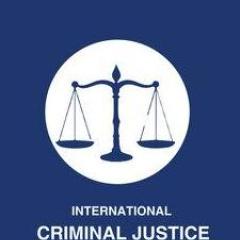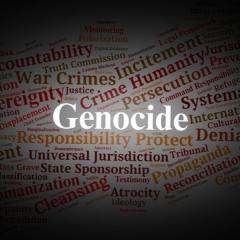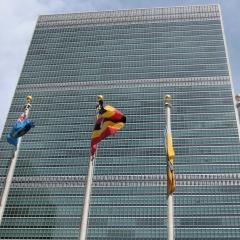In this podcast to coincide with the International Day for the Elimination of Sexual Violence in Conflict, Atrocity Prevention Coordinator with the Asia Pacific Centre for the Responsibility to Protect, Nikki Marczak, speaks with a panel of researchers and practitioners working in the area of conflict related sexual violence. The discussion looks at the impact of UN resolutions and high profile public campaigns, issues of stigma and shame, what the language of ‘survivor-centred’ could look like in practice, and the issue of justice for survivors.
Facilitator: Nikki Marczak, Atrocity Prevention Coordinator, Asia Pacific Centre for The Responsibility to Protect
Nikki Marczak is leading the Centre’s work with the Asia-Pacific Atrocity Prevention Partnership (APPAP), which involves advancing research and networks in the region aimed at preventing atrocities. Nikki is a genocide scholar and survivor advocate who has worked with Armenian, Yazidi and Jewish communities. She is a member of the Australian Institute for Holocaust and Genocide Studies and co-editor of Genocide Perspectives V and VI. Her research focuses on women’s experiences of genocide and the transgenerational effects of genocide, and has been published by various academic journals, policy think tanks and media outlets.
Panel Members
Dr Nicole George
Nicole is Associate Professor with the School of Political Science and International Studies at the University of Queensland. Nicole’s research focuses on the gendered politics of conflict and peacebuilding, violence, security and participation. She has a strong interest in feminist institutional theory, as well as conceptual debates on regulatory pluralism and contested notions of (gendered) order as they are evident in local and global politics. Since the early 2000s, she has conducted research in the Pacific Islands region focusing on gender politics, gendered security and post conflict transition in Fiji, New Caledonia, Bougainville and Solomon Islands. She has worked in collaboration with women’s organisations, women decision-makers and women policy-makers in these settings to progress aspects of this work. She has led large, externally funded, comparative research projects examining how women's rights to security are instsitutionalised in Pacific Island countries (2013-2016) and where and how women particiipate in post-conflict transformation (as part of a broader collabortive ARC Linkage Project (2016-2020).
Michelle Ringrose
Michelle is a PhD candidate and sessional academic with the School of Justice, Faculty of Law at the Queensland University of Technology. Her current research focuses on the gendered construction of genocide in civil society advocacy with a focus on the Yazidi genocide. She has a background in criminology and psychology with her broad interests lying with the study of gender, genocide recognition and language.
Liz Gordon
Liz is Clinical Supervisor and Counsellor, Qld Program of Assistance for Survivors of Torture and Trauma. Liz is a social worker who has worked in various roles at QPASTT for over a decade as a counsellor, manager and supervisor. She is also currently studying a Masters of Childhood and Play at Deakin University with an interest in child and family centred practice to aid in the recovery of survivors of refugee related torture and trauma. Liz also has an interest in the sustainable practice and professional development of staff working with survivors of refugee related torture and trauma.
Technical support: Jemilla Raphael, due to graduate in July 2019 from the Graduate Certificate in Peace and Conflict Studies, The University of Queensland.
Further information about UN resolutions, relevant organisations, and research discussed in this podcast can be found via the links below:
- UN Security Council Resolution 2467
- UN Security Council Resolution 1820
- UN Security Council Resolution 1325
- Lauren Aarons, Is Justice The Antidote to Sexual Violence in Conflict?, Just Security
- Nikki Marczak, Sherizaan Minwalla, Johanna E. Foster, On their own terms: a survivor-centered approach to sexual violence in conflict, WMC Women Under Siege
- Queensland Program of Assistance for Survivors of Torture and Trauma



